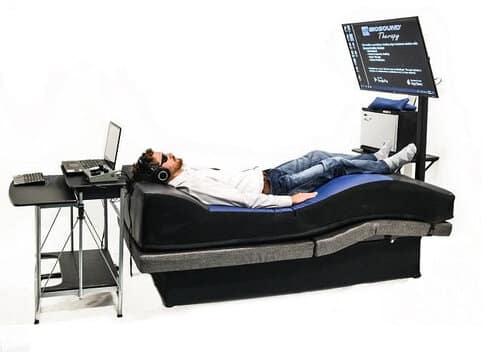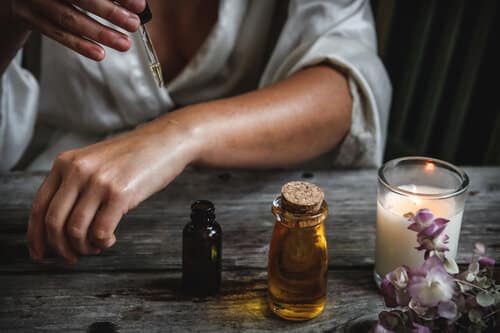Request a Callback
BPD Treatment
In the complex landscape of mental health and substance abuse treatment, individuals with co-occurring Borderline Personality Disorder (BPD) face unique challenges on their path to recovery. However, with the right approach and specialized care, it is possible to unlock the doors to healing and a brighter future.
We understand and have empathy, providing insights and practical guidance for those seeking help or supporting loved ones in their journey.
By shedding light on the latest research and therapies, we aim to empower individuals and break down the stigma surrounding BPD.
Whether you are a person living with BPD, or a loved one looking for ways to support someone on their recovery journey, we aims to equip you with the knowledge and resources necessary to navigate the intricate path of Borderline Personality Disorder treatment.
Borderline Personality Disorder (BPD)
Borderline Personality Disorder (BPD) is a complex mental health condition characterized by intense emotions, unstable relationships, and a distorted sense of self. Individuals with BPD often struggle with regulating their emotions, leading to impulsive behaviors and a heightened sensitivity to perceived abandonment.
The presence of BPD can complicate recovery efforts, as it may exacerbate symptoms of other mental health conditions and increase the risk of substance abuse.
Research suggests that up to 60% of individuals with BPD also experience co-occurring substance use disorders. This high prevalence highlights the need for integrated treatment approaches that address both BPD and substance abuse simultaneously.
We Work With Most Major Insurance Providers
- Aetna
- Amerihealth
- Anthem
- Beacon
- Behavioral Health Systems
- BCBS—Most BlueCross & BlueShield Plans
- Carelon Behavioral Health
- CareFirst
- Cigna
- ComPsych
- Coventry
- Empire BlueCross BlueShield
- GHI
- Highmark
- Humana
- Magellan
- MagnaCare
- Meritain Health
- MultPlan
- NYSHIP (New York State Insurance Plan)
- Optum
- Oxford
- PHCS
- Self-Pay
- TRICARE
- UHC
- UMR
- VA Insurance
- 90 Degree Benefits
- Aetna
- Amerihealth
- Anthem
- Beacon
- Behavioral Health Systems
- BCBS—Most BlueCross & BlueShield Plans
- Carelon Behavioral Health
- CareFirst
- Cigna
- ComPsych
- Coventry
- Empire BlueCross BlueShield
- GHI
- Highmark
- Humana
- Magellan
- MagnaCare
- Meritain Health
- MultPlan
- NYSHIP (New York State Insurance Plan)
- Optum
- Oxford
- PHCS
- Self-Pay
- TRICARE
- UHC
- UMR
- VA Insurance
- 90 Degree Benefits
At this time, we do not accept Medicaid or Medicare.
Relevance saved my life. Everyone here is so helpful and genuine. I highly highly recommend!
This program was absolutely life changing. It fully brought me out of a dark tunnel and into a fresh perspective of enlightenment.
Coming from another treatment center from southern Jersey, I was really anxious and afraid, being completely out of my element, it felt like I was a fish out of water. Relevance’s team really made me feel comfortable while I was being treated, and I thank them for that. I felt really supported and cared for during the time I attended program!
Grateful for Relevance and their open door to seek the treatment I needed.
Great place! All the people are friendly and the staff helped me greatly in my recovery.
This place is a wonderful place to better yourself if you’re looking for a place that still feels like reality. You are not isolated from the rest of the world, but working on yourself within it. Most of the employees here really make an effort to help you, and the atmosphere is wonderful! I’m so greatful for this place
Relevance was such a welcoming environment every day. Staff was amazing supportive and caring. Definitely helped me prepare for life after treatment.
Common Challenges In Treating BPD Patients
Treating individuals with co-occurring BPD, substance abuse, and mental health disorders can be challenging due to various factors.
- One of the primary challenges is the emotional fluctuations can make it difficult for individuals to engage in therapy or adhere to treatment plans consistently.
- Additionally, the impulsive nature of BPD can lead to self-destructive behaviors, further complicating the recovery process.
- Another challenge is the high prevalence of comorbid mental health disorders among individuals with BPD such as depression, anxiety, and post-traumatic stress disorder (PTSD) frequently co-occur with BPD.
- Moreover, the stigma surrounding BPD can hinder treatment-seeking behavior and prevent individuals from accessing the help they need.


Evidence-Based Treatment Approaches For BPD
When it comes to treating individuals with BPD and substance abuse, evidence-based therapies have shown promising results. These therapies are grounded in scientific research and have been proven effective in managing symptoms, promoting recovery, and improving overall well-being.
- Dialectical Behavior Therapy (DBT): One of the primary evidence-based treatments for BPD is Dialectical Behavior Therapy (DBT). DBT combines individual therapy, group skills training, phone coaching, and therapist consultation to provide a comprehensive treatment approach for individuals with BPD.
- Schema Therapy: Another evidence-based approach is Schema Therapy, which addresses the underlying maladaptive schemas or core beliefs that contribute to BPD symptoms. By identifying and challenging these schemas, individuals can develop healthier coping mechanisms and improve their emotional well-being.
Dialectical Behavior Therapy (DBT)
Dialectical Behavior Therapy (DBT) has emerged as a leading treatment modality for individuals with BPD and substance abuse.
DBT focuses on four key modules. Those are:
- Mindfulness: Mindfulness, a cornerstone of DBT, helps individuals become more aware of their thoughts, emotions, and sensations in the present moment. By cultivating mindfulness, individuals can develop a greater capacity to tolerate distress and make healthier choices.
- Distress tolerance: Distress tolerance skills teach individuals how to manage intense emotions without resorting to self-destructive behaviors or substance abuse. These skills include self-soothing techniques, distraction strategies, and crisis survival skills.
- Emotion: Emotion regulation skills help individuals identify and modulate their emotions effectively. Through emotion regulation, individuals can learn to reduce emotional vulnerability, increase positive emotions, and decrease negative emotions.
- Interpersonal effectiveness: Interpersonal effectiveness skills focus on improving communication, setting boundaries, and building healthy relationships. These skills empower individuals to navigate social interactions successfully and advocate for their needs while maintaining self-respect.
The Role Of Medication-Assisted Treatment In BPD
- Medication-assisted treatment (MAT) involves the use of medications, in combination with therapy, to manage withdrawal symptoms, cravings, and co-occurring mental health conditions.
- For individuals struggling with substance abuse, medications may be prescribed to reduce cravings and prevent relapse. These medications, when used in conjunction with therapy, can significantly improve outcomes and support long-term recovery.
- In the case of co-occurring mental health disorders, medications such as selective serotonin reuptake inhibitors (SSRIs) or mood stabilizers may be prescribed to alleviate symptoms and improve overall functioning.
- It is important to approach medication-assisted treatment as part of a comprehensive treatment plan that includes therapy, support groups, and other evidence-based interventions.


We believe in Holistic Therapies.

Biosound Therapy
Biosound Therapy is the integration of Biofeedback, Therapeutic Music, sound healing massage, and guided imagery. The guided imagery selections on the Biofeedback Bed are designed to address the guilt, fear, shame and trauma associated as underlying issues for most dealing with addiction. These moving meditations begin with a journey to a completely relaxed state of mind. Then, utilizing a unique echo effect, powerful and positive affirmations are delivered. This combination helps the client overcome those deep rooted, negative patterns of thought and behavior.
- Relieves pain & stress
- Assists with Detoxification Treatment
- Lowers cravings, impulse behavior and racing thoughts
- Lowers anxiety & depression

Equine Psychotherapy
Equine-Assisted Therapy is used to treat patients challenged with everything from drug and alcohol abuse dependency and post-traumatic stress syndrome. The therapy takes advantage of the mental and physical exercise that working with a horse can provide. Equine therapy:
- Helps clients learn to identify and cope with feelings
- Promotes Effective Communication Skills
- Helps Addicts Better Manage Behavior
- Teaches How to Set Boundaries
- Restores Self-Esteem and Self-Worth

Massage Therapy
Clients at Relevance receive weekly massage therapy from our Licensed Therapists. Some additional benefits include:
- Release of ‘feel-good’ hormones. According to the American Massage Therapy Association (AMTA), massage helps to increase serotonin and dopamine (feel-good hormones) and decrease cortisol which is related to stress.
- Reduce agitation and anxiety and ease sleep problems.
- Provides a natural, alternative method of healing, free of drugs.
- Helps with the removal of metabolic waste. Therapeutic massage triggers or stimulates the body’s parasympathetic nervous system. This in turn can increase circulation and promote the effectiveness of the lymph system. The lymph system helps to alleviate pain symptoms and is responsible for removing the body’s metabolic waste build-up.
- Provides the client with a connection to their body, and improves or increases body awareness.
*This is an optional, additional therapeutic therapy available after clinical treatment hours.
Holistic Approaches
- In addition to evidence-based therapies and medication-assisted treatment, holistic approaches can enhance the recovery journey for individuals with BPD and substance abuse.
- Mindfulness practices, such as meditation and deep breathing exercises, can help individuals develop a greater sense of self-awareness and promote emotional regulation.
- By cultivating a mindful approach to life, individuals can reduce stress, increase resilience, and enhance overall well-being.
- Yoga provides a holistic approach that integrates the mind, body, and spirit, promoting self-acceptance and inner healing.
- Other holistic approaches that can complement traditional treatment include art therapy, music therapy, and equine-assisted therapy.
- These modalities offer alternative ways to express emotions, process trauma, and develop coping skills.


The Importance Of Family Involvement And Support In BPD
A strong support system and family involvement can provide encouragement, understanding, and accountability, significantly improving treatment outcomes.
Family members can play an active role in therapy sessions, providing valuable insights and fostering open communication. Family therapy, specifically designed for families affected by BPD and substance abuse, can help address relationship dynamics, improve understanding, and promote healing.
Education and support groups for family members can also be beneficial, as they provide a safe space to share experiences, learn coping strategies, and receive guidance from professionals and peers who have gone through similar challenges.
Creating a supportive and non-judgmental environment is crucial to fostering recovery and rebuilding relationships. By educating themselves about BPD and substance abuse, family members can better understand the challenges their loved ones face and offer the necessary support.


Hope And Resources For Individuals
Navigating the path of Borderline Personality Disorder treatment for individuals with co-occurring substance abuse and mental health disorders can be daunting. However, with evidence-based therapies, integrated treatment approaches, and a strong support system, recovery is possible.
Remember, seeking help is a courageous step towards healing. If you or someone you know is struggling with BPD and substance abuse, reach out to us. Resources and support are available to guide you through this challenging but transformative process.
Together, we can unlock the doors to recovery and pave the way for a brighter future.


Get the Help You Need, Now.
Start your journey to substance abuse recovery with us in New Jersey today.



